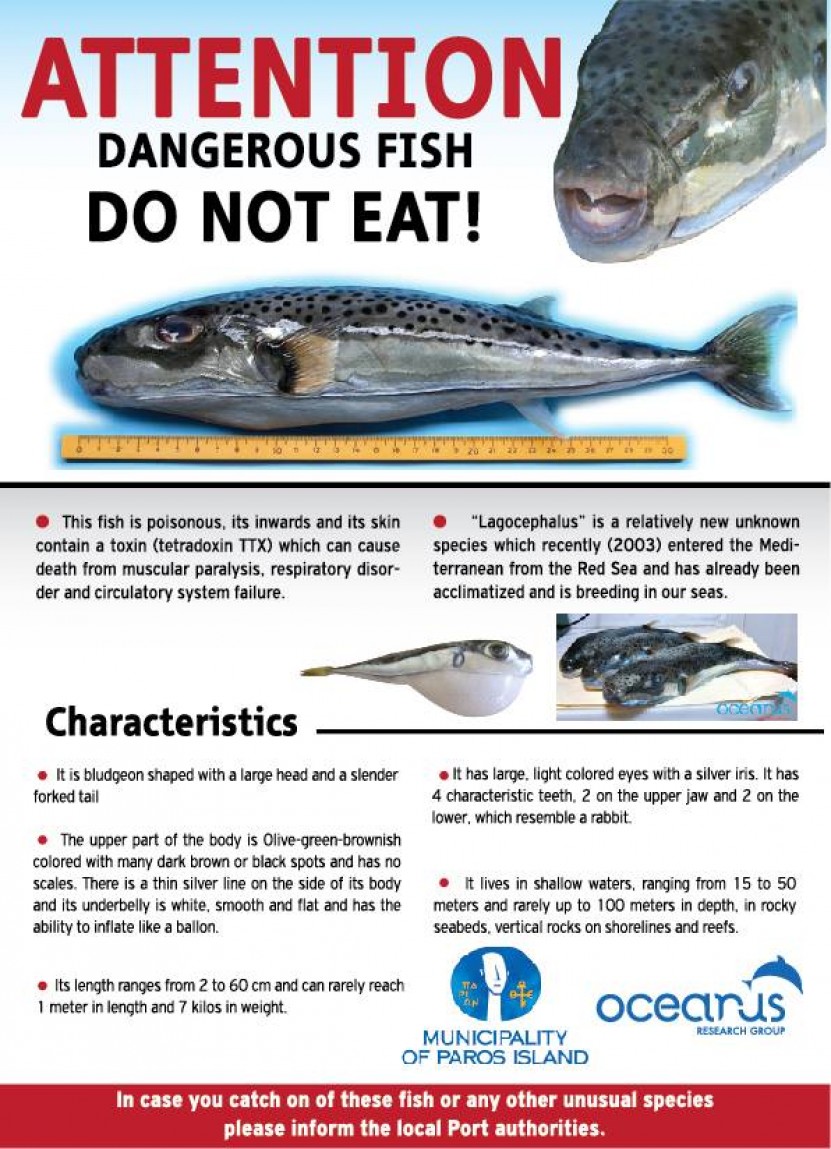The Lagocephalus invasion

Ends
For the Lagocephalus Invasion Project we would like to study diet, toxicology, and DNA in an effort to try to stem the devastating spread of this species in the Mediterranean Sea. For this urgent project to become reality we require funding in the amount of 40,000 Euros in the first year (May 2014|2015 May). Please let us know if you can help or have any contacts that may be of assistance.
Lagocephalus sceleratus is the worst invasive species in the Mediterranean Sea with a significant impact on the surrounding ecosystem and on the fisheries sector (Zenetos et al., 2005; Peristeraki 2006; Streftaris & Zenetos 2006; Ozturk 2010). More importantly, L. sceleratus is considered to be a serious hazard to consumers since it contains a strong marine toxin called tetrodotoxin (TTX), which can be lethal to humans. In addition, L. sceleratus has been recorded to destroy
fishing nets and lines leading to economic losses for fishers. The purpose of this project is to study the relative abundance distribution of Lagocephalus sceleratus in Aegean Sea with a focus on the potential commercial use of this species. If left unchecked this species will result in serious environmental and economic damage to Mediterranean’s already degraded fisheries.
Programme Objectives
Video and photographic documentation of the presence of L. sceleratus in the waters of the islands of Aegean Sea.
Through the Internet, local media, Coast guard inform the public and fishermen about the dangers of this toxic fish, not edible. In collaboration with Greek Authority spreading of guidelines and protocol for first aid in case of ingestion of this fish.
Creation of an internet data bank and map through sightings, pictures and gps position helping also by supporters and all those people will follow the project.
Other Goals and Benefits
The benefits of being involved with the L. sceleratus programme include:
• Educate fishermen on this invasive alien species.
• A greater understanding of our fisheries
• Training on safe handling of the L. sceleratus
• Prevention of accidental injury, poisoned from the ingestion.
• The conservation, preservation and protection of Mediterranean’s ecosystem.
http://www.oceanus.it/the-lagocephalus-invasion.html
https://www.facebook.com/OCEANUS.it



